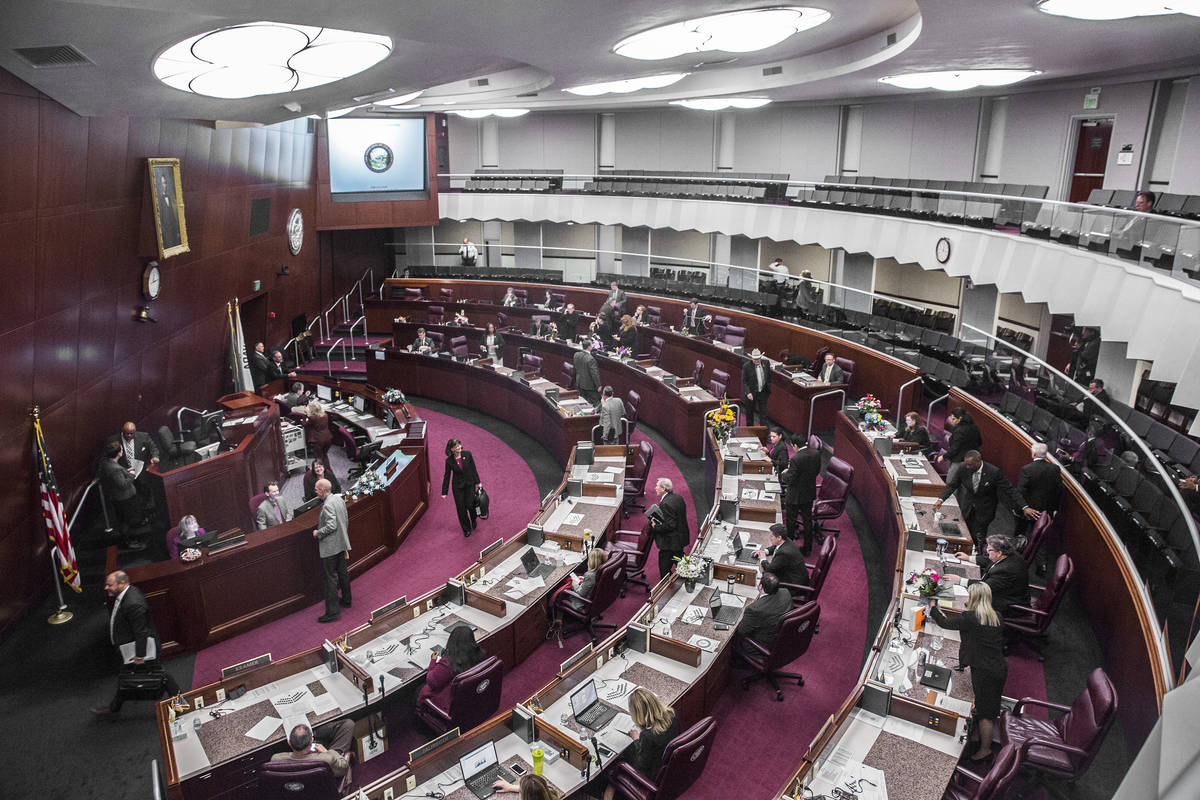STEVE SEBELIUS: Add state lawmakers to the list of essential workers
As the sometimes-confusing rollout of the COVID-19 vaccine continues, there’s been plenty of talk about people “jumping the line” to get inoculated before it’s their turn.
Most people agree that people in the most jeopardy should go first. That list includes firefighters, paramedics, police officers, doctors and nurses who work in hospitals (especially those treating coronavirus patients), teachers going back to in-person instruction and elderly people (especially those living in close quarters such as nursing homes).
There’s less agreement on another group: elected officials.
When Clark County Commissioner Tick Segerblom suggested on social media recently that Nevada state lawmakers should be inoculated before heading up to Carson City, he got plenty of pushback.
Hating on elected officials is almost always in style, and all the more so when partisan divisions grind the wheels of government to a near-stop. Some think they shouldn’t get paid, much less inoculated.
But that’s wrong.
Consider for a moment the 63 people who will report for duty as the 81st regular session of the Nevada Legislature is called to order Monday.
First, they are required to travel to Carson City. Article 4, Section 1, of the state constitution stipulates that legislative sessions “shall be held at the seat of government of the state,” and Section 2(1) requires that those sessions “shall commence on the 1st Monday of February following the election of members of the Assembly.” And the two houses of the Legislature are empowered (under Article 4, Section 13) to compel the attendance of absent members.
In other words, lawmakers have no choice about where they are going to be come Monday.
Second, their jobs are essential to the functioning of the state. Article 4, Section 19, of the state constitution declares that “no money shall be drawn from the treasury but in consequence of appropriations made by law.”
That means, if the Legislature were not to convene in Carson City, the government would shut down at the end of the current fiscal year.
For the uniformed, this may be a good thing. Who cares? they may say. We’d be better off!
But for those who dwell in the reality-based community, it would be a disaster. There would be no schools, in-person or online. There would be no one to guard state prisons or respond to emergencies on state highways. There would be no investigations and prosecutions of people who prey on others via fraud. Businesses awaiting the resolutions of their legal disputes would see judges disappear from appellate court benches. And yes, the sometimes-haphazard COVID-19 response would be that much more disorganized.
We need state lawmakers in Carson City doing their jobs for the next four months. And we’d definitely notice if they didn’t show up.
Some will object to placing lawmakers in a special class, deriding them as “elites” who don’t have to struggle with issues that affect the common people. But they are elite in one sense: They have been invested with the political power of the people contemplated by Article 1, Section 2, of the state constitution and are uniquely empowered to do the public’s business.
But it’s not just elected officials. It’s the staff they hire to help them do their jobs, deal with constituents and manage the lawmaking process. It’s Brenda Erdoes, and the entire staff of the Legislative Counsel Bureau, the people who draft the laws, research the issues that go into legislation and give legal and practical advice to legislative committees. It’s the people who analyze the budget and track the impact of cuts. And it’s the legislative police officers who guard the building and keep everyone inside of it safe, whose jobs have taken on renewed importance in the wake of the storming of the U.S. Capitol by vandals and thugs trying to thwart the proper functioning of government.
All of those people should be eligible to get the coronavirus vaccine immediately so that their essential and constitutionally mandated jobs can be conducted safely.
The 2021 session will be almost entirely virtual, at least at first, with members of the public allowed in later as vaccinations take place. That’s as it should be: There is no substitute for an open, transparent legislative process.
But in the meantime, the essential representatives of the people and their employees should get the COVID vaccine and then get to work.
Contact Steve Sebelius at SSebelius@reviewjournal.com or 702-383-0253. Follow @SteveSebelius on Twitter.























